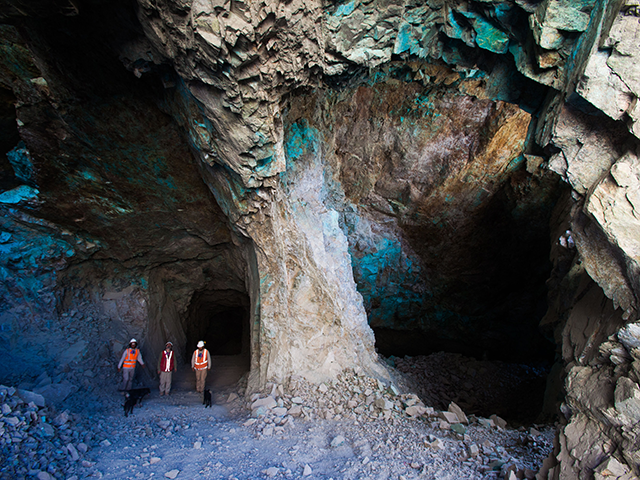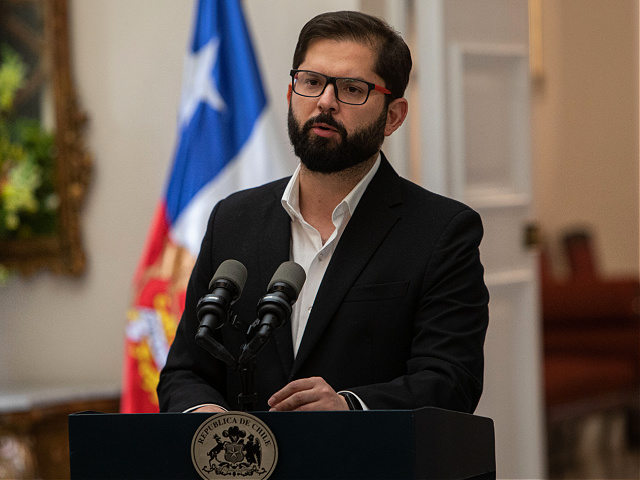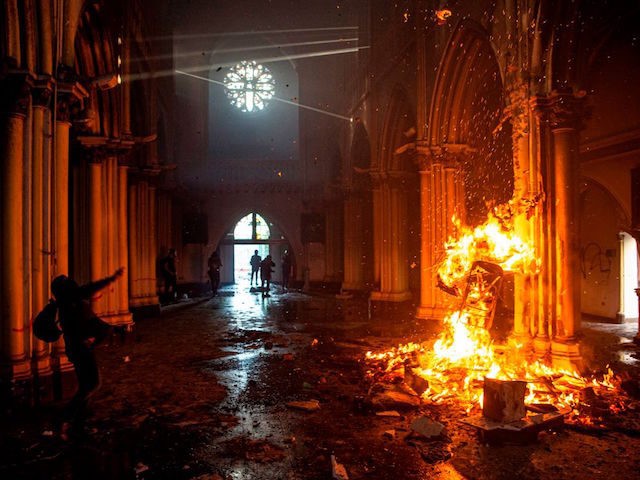Chile lost over $50 billion in investment between the beginning of violent leftist riots in 2019 and September 2022, Bloomberg reported on Thursday – and, with a hardline socialist president, prospects for what was once Latin America’s most successful economy look bleak.
The riots that began that year, allegedly intended as a protest against a proposed public transit fare hike, resulted in years of chaos as leftists burned down churches, attacked police stations, and engaged in mass violence that resulted in at least 34 deaths. Then-President Sebastián Piñera, a centrist, canceled the fare hike, only for leftists to suddenly demand an entirely new national constitution.
The upheaval in the country largely defined the 2021 presidential election, which far-left radical Gabriel Boric won by a narrow margin in December of that year. Boric followed through on the promise to organize a constitutional convention to write a new core document, but Chileans rejected the product of that convention – what would have been one of the world’s most “progressive” constitutions – last year, fueling disappointment with Boric on both sides.

Demonstrators against a proposed new constitution celebrate on September 4, 2022, in Santiago, Chile, after the results of the referendum to approve or reject the current constitution, which was imposed during the dictatorship of Augusto Pinochet. The rejection of the new draft won after getting 62% of the votes. (Jonnathan Oyarzun/Getty Images)
Public disapproval of Boric and a growing sense of instability in Chile, fueled by ongoing rioting, rampant street crime, and Boric pardoning terrorists and rioters, appears to be spooking potential foreign investors even further. Boric has not been able to capitalize on his image as a climate change crusader to attract any substantial interest in his country from the electric vehicle industry and green technology – which needs copper, a top Chilean export, in large quantities – outside of dubious deals with the Chinese Communist Party.

Workers of the Next Mineral mining company inspect the Comahue copper mine in Antofagasta, Chile, on March 1, 2021. (GLENN ARCOS/AFP via Getty Images)
Bloomberg reported on Thursday that the Chilean central bank documented a loss of over $50 billion in investment, without specifying from where, since 2019, “about one-sixth of Chile’s annual economic output.”
“Chile’s central bank lowered its trend growth forecast over the next decade to 2.1% from 2.8% in December. It also raised its forecast for the nation’s neutral interest rate to 3.75% from 3.5%,” the report continued.
Bloomberg cited experts who described the South American country as experiencing “a huge loss of competitiveness” under Boric, though it appears to have begun prior to his presidency or even the Chinese coronavirus pandemic. The uncertainty of a potential new constitution taking effect has cooled interest from foreign investors, as well.
Speaking to Forbes last month, Boric’s Economics Minister Nicolás Grau attempted to present a more optimistic outlook on foreign investment and business confidence.
“In terms of investment, it has effectively been a better-than-expected year,” Grau told the magazine. “Not just in foreign investment, which of course is a very important dimension, but also in the gross formation of capital, which is a more direct measure of investment that combines both foreign investment and local investment.”
Grau claimed Boric’s government had essentially eased concerns that he was a Marxist radical, having “shown responsible, transparent economic management that, of course, wants to make some important structural transformations, but they are predictable transformations.”
Polling shows a significant majority of Chileans consider their economy to be in a poor state and worry about concerns such as inflation and crime. A poll published last week by the firm Ipsos found 83 percent of respondents, Chilean citizens, believe that the current economic situation in the country is “bad.” Exactly half listed inflation as a significant concern, second only to Argentina, where 65 percent of the population is concerned about the increasingly catastrophic rates of inflation in that country.
The top concern for Chileans, however, according to the Ipsos poll, is crime. Of those answering the survey, 63 percent said their top concern is crime and violence in society, more than any other country polled. The Chilean television network T13 noted that Chileans were more concerned about crime than those living in countries such as Israel and South Africa. Concerns surrounding crime, and especially violent crime, have escalated in the face of both political crimes such as arson and looting and seemingly non-political events. Of particular note last year were the muggings of multiple journalists while on live television delivering news reports.
Adding to the sense of a collapse in law and order were also seemingly apolitical events such as the chaotic spectacle at a Daddy Yankee concert in September where a mob of 4,000 people stormed the concert venue, stampeding in without tickets and leaving both ticketed spectators and security officials helpless. Police later revealed evidence that the attack on the venue was organized through large social media chat groups by individuals who wanted to go to the concert without paying.
Boric’s approval ratings have suffered as concerns over daily life in the country grow. A poll by the firm Cadem published last week found record disapproval for Boric, barely a year into his presidency, at 70 percent. Only 27 percent of Chileans approve of Boric’s performance, a three percent drop from the already dire 30 percent who approved of him in the same poll a week prior.

Chilean President Gabriel Boric holds a press conference at the La Moneda presidential palace in Santiago, Chile, on November 29, 2022. (Lucas Aguayo Araos/Anadolu Agency via Getty Images)
Boric’s approval rating appeared to have been negatively affected by the announcement last week that he would issue 13 pardons, 12 of them to men arrested for engaging in various acts of violent crime during the 2019 riots. The 13th pardon went to a member of a Marxist-Leninist terrorist organization.
“It is a difficult decision, but I do it thinking about the good of the country. I believe that we have to heal these wounds. Here we lived a process that was tremendously complex where these are young people who are not delinquents,” Boric said in announcing the pardons. “They are complex decisions, but I assume them responsibly.”

COMMENTS
Please let us know if you're having issues with commenting.